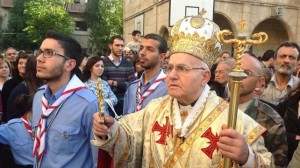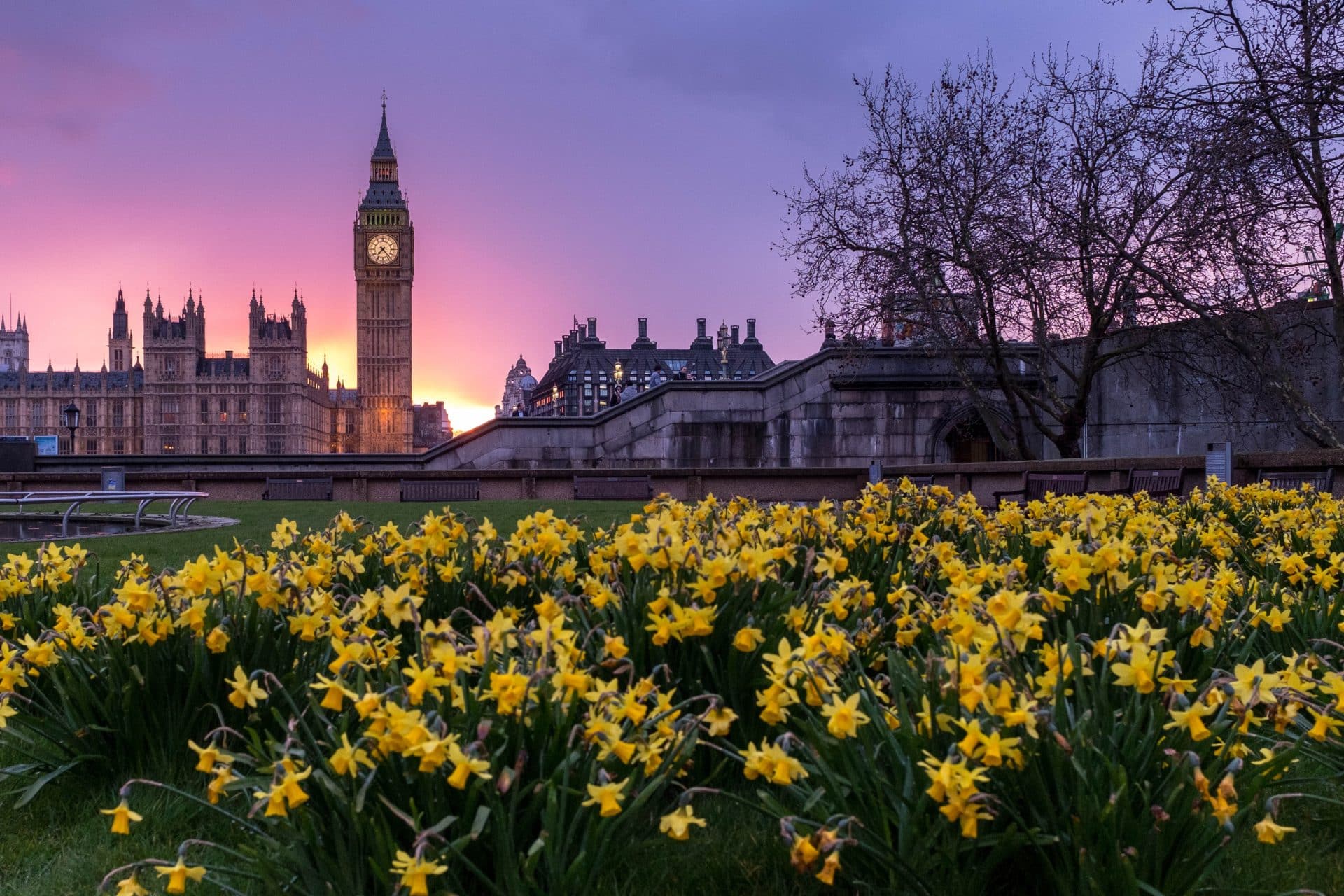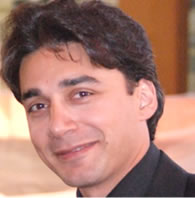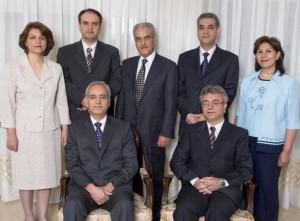Among the record numbers of migrants from Africa and Asia who are dying in European waters, many are fleeing war and poverty, but there also is a religious dimension: some of the migrants are Christians, unable to freely practice their faith in their home countries, says a recent report by World Watch Monitor.
At least 1,750 people have died in the Mediterranean Sea already this year, more than 20 times the number at this stage last year.
Thomas Albinson, President of the US-based International Association for Refugees, recently wrote. “Trace the steps of those on the boats, and you will find your way back to wars, failed states, persecution, oppression and hopelessness.”
Enos Nolli, born and raised in Libya, is director of Sicily-based GiM Italia (Generations In Mission), a Christian organisation that, since 2011 has supported more than 6,000 refugees from more than 50 countries, who have survived perilous journeys over land and sea.
“Many escaped from countries at war, others from countries where poverty is very great,” Nolli told World Watch Monitor. “Many others [fled] because they are in danger for political reasons, and others just for being Christian. These [Christians] mainly ran away from Muslim countries and many of them, who we met here in Sicily in the refugee camps where we work, came from Pakistan, Iran, Northern Nigeria, Eritrea, Senegal, Mali, Gambia, Niger, Somalia, Egypt and Libya.”
Here are some of the stories he has heard, collected by GiM from interviews with new arrivals and from one refugee who has settled in Europe. The English quotes here are the product of two translations – from the original language to Italian, and from Italian to English. We give only first names, to help protect their identity.
Manù, country of origin Niger
Manù, 23, said his family threatened to kill him after he converted from Islam to Christianity. “Anyone who changes religion [from Islam] could be killed. I went secretly to meetings at the local evangelical church, which is only attended by foreigners, but soon someone found out. My father was a known and respected imam, and I was warned by my uncle to stop my interest in Christianity.
“After three months trying to convince me, we had a family meeting with my father, his two wives, my 12 brothers and other relatives. Firstly my father offered me a job and some money. Then I was threatened again, but I didn’t change my mind, so all the people there beat me up – even my mother who loved me so much – until I fainted.”
Scared and in pain, Manù fled. “Badly injured, I escaped from my home and at the market I met a tuareg [desert nomad] who, seeing my condition, helped me and took me to Libya without asking for payment. We crossed the desert in five days until we reached the city of Sebha. There I was beaten again by Libyans because I had black skin.”
He eventually found himself on a boat and, after two days at sea, arrived at Lampedusa, an Italian island midway between Sicily and the Libyan coast. Then he was moved to the camp in Mineo. “For a whole week, I could not sleep,” Manù said. “They made me meet a psychologist, but then I asked to speak with a pastor who works with GiM.
“What a joy to to watch a film about Jesus in my own language [Hausa] and to receive an MP3 with a recording of the Bible in Hausa! Now I am peaceful, I can sleep well and I pray for my family that they can know this peace that only Jesus can give! I am learning Italian, I would like to attend a Bible school and become a pastor.”
Andrè, country of origin Senegal
Andrè, 32, said he fled from home after he witnessed Islamic extremists murder his aunt, uncle, brothers and cousins. “I never knew my parents and I grew up in my uncle’s home, who was a Christian and was like a father to me,” he said. “Many times in the past my uncle had been beaten and threatened with death, but one day he was beaten and killed by Islamic extremists.
“I was at home and I heard my aunt shouting for me to run. I escaped while she was murdered, together with my brothers and cousins. Her screams still thunder in my head and my pain is strong because my aunt and uncle taught me God’s ways.”
Andrè, who had been a preacher, is separated from his wife, an obstetrician, and their two-year-old son, who had taken refuge in the Gambia. He faces an anxious wait while his asylum claim is processed. “I was living through a very sad period, knowing that my child’s health was not so good and I could not do anything,” he said. “Eventually, I arrived in Libya and then by boat to Lampedusa and finally Mineo, where I met GiM.
“The visits and the constant support of GiM were essential for me and now I am encouraging people in the camp to find peace with God they may still have not found. Sometimes I can communicate with my wife, but I would like to have all the family together again, if my asylum request is accepted.
“Recently the Commission granted me three years permission (I was hoping to get five years’ international protection. I moved to Rome but I haven’t found a permanent job yet.”
Seiku, country of origin Gambia
Seiku, 21, said he faced death threats after converting from Islam to Christianity. “I was attracted by the Christian faith and I wanted to know more about it, but my father was a very fanatical Muslim, and he tried to prevent it until he threatened to kill me,” he said. “I was surprised and afraid, and my boss, who tried to encourage me [in the Christian faith], was threatened too. So I had to escape from The Gambia. I crossed Senegal, Mali, Burkina Faso and Niger and then crossed the desert for five days to reach Libya.”
He arrived in Libya without any documents. “I was imprisoned and mistreated for six long months. Then, together with 200 refugees, we were forced to board a boat and after two days on the sea we arrived in Lampedusa.”
Having arrived in Italy, Seiku said he is desperate to reconnect with his family. “I haven’t heard anything about my family for three years. For some months I have been encouraged by GiM to learn to read and write and to speak Italian. Now I am nervously waiting for the decision about my asylum request. GiM gave me an MP3 with a recording of the Gospel in my own language, Mandinga, and this gives me peace. I cannot return to my country,” he told GiM.
Remy, country of origin Togo
Remy, 29, from Togo, said he faced death threats in Mauritania and later was imprisoned in Niger. “I was preaching in Mauritania, a completely Muslim country. About 50 of us used to meet and pray together, but we were always in danger,” he said. “One day someone I worked with was killed and I found a sign on my door saying ‘You will be the next one to die.’
“From Mauritania I fled to Niger, where I preached for two and a half months, before being arrested and imprisoned for many months because they saw me with a Bible in my hands. Once released, I crossed the Sahara to Libya, then [by boat] to Italy.”
Moasala*, country of origin Pakistan
For some, like Moasala, 30, the journey has been mainly overland. “My father is a historian and a Christian. He is known all over the country because he leads a Christian party and he has often fought in favour of ethnic and religious minorities, who are discriminated against and persecuted in Pakistan.
“More than once my father has been arrested and imprisoned, his salary has been withheld, and he has suffered psychological and mental torture. When I was 22, I decided to fight openly by my father’s side. Some strangers beat me and threatened me, telling me that I would soon be like Salman Taseer.” (Taseer is the late governor of Punjab, who was shot by his own bodyguard after he criticised Pakistan’s laws that forbid insulting Islam.)
As with so many others, Moasala fled for his safety.“After receiving other threats, my relatives persuaded me to leave the country, to go on fighting my battle in a safer way. So after crossing Afghanistan, Iran, Turkey and Greece, I reached Italy, where I spent a period at GiM in Mineo.”
Moasala now lives in Denmark. “Thanks to God, I obtained the international protection and the residence,” he said. “Actually I am spending some time in Denmark, where I have a brother, who has been enjoying international protection for some years. I am worried for my family who are still in Pakistan and I want to go on fighting on behalf of religious freedom, against religious fanaticism so that my country could become a place of peace, respect and justice.”
* Name changed to protect identity.
 One of Syria’s most senior Catholic leaders has pleaded the Western powers for a full scale intervention in the country’s five year conflict, following another attack on rebel-held Aleppo, reports Aid to the Church in Need.
One of Syria’s most senior Catholic leaders has pleaded the Western powers for a full scale intervention in the country’s five year conflict, following another attack on rebel-held Aleppo, reports Aid to the Church in Need.


